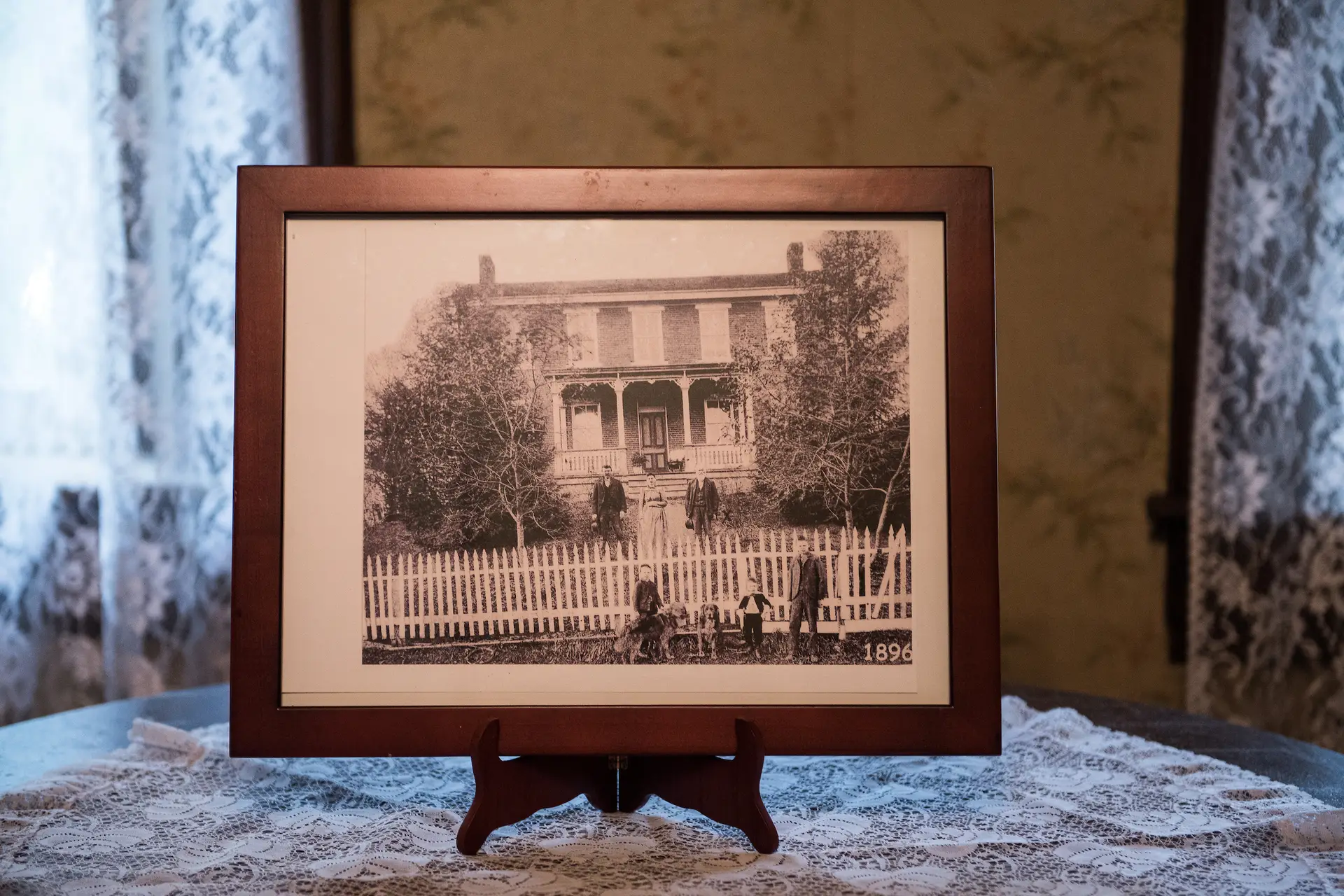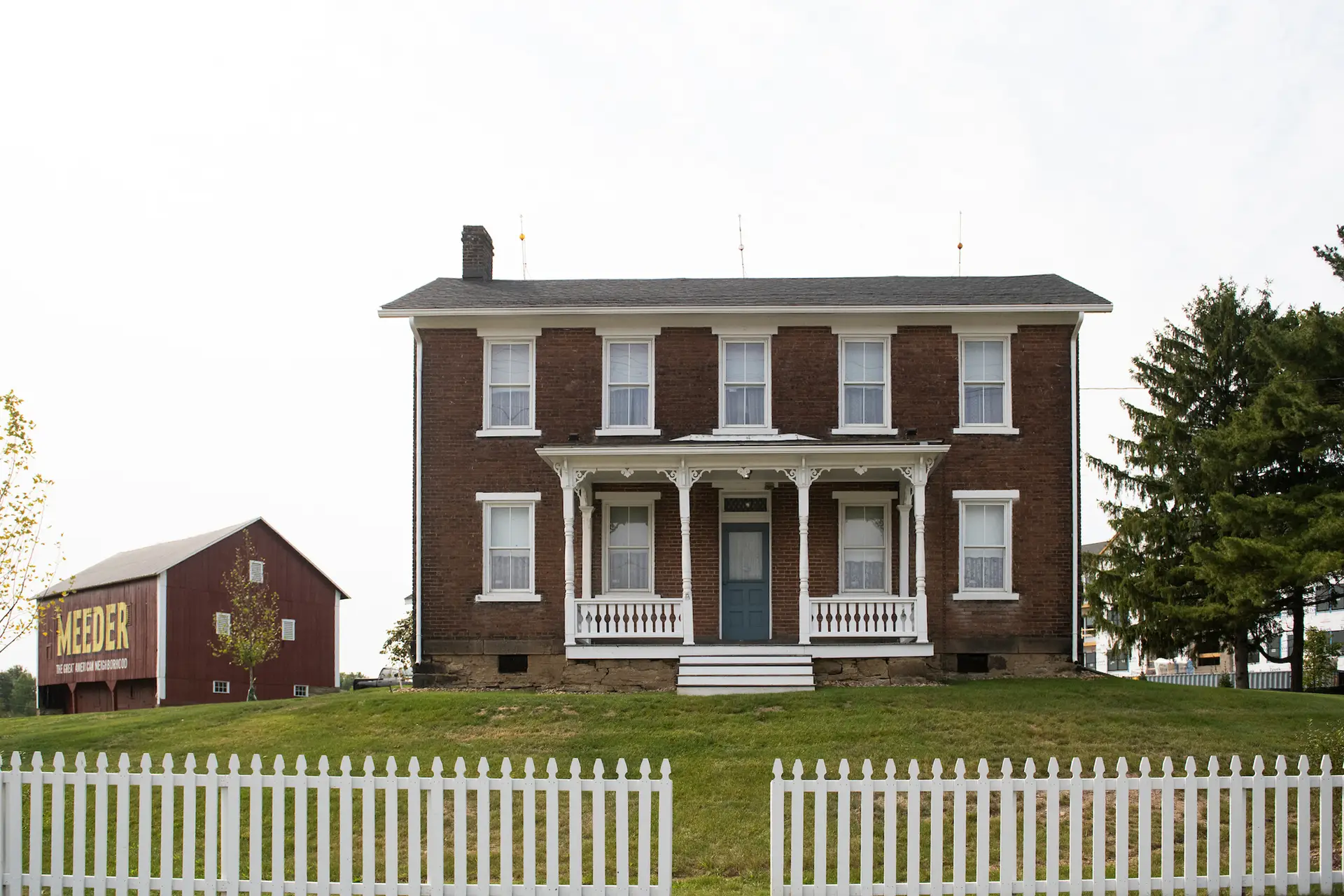Just a stone’s throw from Route 19, a timeless landmark stands confidently against the backdrop of imminent change: the Meeder barn. Its brick red paneling contrasts gently against the green acres of its surrounding meadow; but this juxtaposition pales in comparison to that of its 150 year old history against the modern amenities of this neighborhood’s recent development. The Meeder barn and family farmhouse might be two of the last standing monuments that truly recount Cranberry Township’s days-of-old. Keeping in theme with Charter’s core value of respecting the story of what came before, it was crucial to the company that both of these buildings remained to be cherished by both longtime residents and new neighbors of the Meeder neighborhood.
The Meeder Barn is banked, timber-framed, hand risen, and as classic a red as a barn can get. Today, it sports hand-painted sunflower yellow letters that span across its Eastern wall. They read “Meeder”: the surname of the family that cared for the land until it officially became a Charter Neighborhood. In addition to this tribute, the barn also received foundational repairs, gutter work, roof refurbishing, and window replacements on behalf of its developers. But historical purists can rest assured that aside from this structural tinkering, great care was taken to ensure that the original patina of the building was maintained; the intention of this upkeep was never to “upgrade” the barn to suit the aesthetic of the neighborhood, but to guarantee that the heirloom would live on for years to come. To secure its architectural integrity, Charter believes, is to protect the Meeder legacy of living off the land.
But beyond visual refurbishing, it was also important to the company to create new ways for the neighborhood to engage with the barn. Today, walking trails have been cleared for neighbors to jog, bike, or stroll past the old barn and farmhouse. It’s Charter’s hope that each passerby is inspired to reflect upon the history of these buildings; imaging livestock shuffling around in their stalls. They should be able to picture the laborious work that went into raising the barn when they spot marks on the exterior wall made by centuries-old tools, almost hearing the voices of the Meeder family conversing as they stow away corn to sell at their road stand.
Progress is inevitable; as we surpass the need for survival and move into an age of advancement, technology will continue to develop, people will persist in favoring convenience, and humanity’s values as a whole will shift. As that happens, the ways we use land will change. While long ago, one family resided on the Meeder land as stewards, today the terrain is owned and beloved by many. While one hundred years ago it grew tomatoes and strawberries, today it cultivates interpersonal connections and happy families. But it is still the same land. Though being used differently, it acts as a reliable constant as life evolves atop it.
Past, present, and future are interwoven on the Meeder soil; and through commitment and action, Charter is making sure this truth never goes forgotten.


